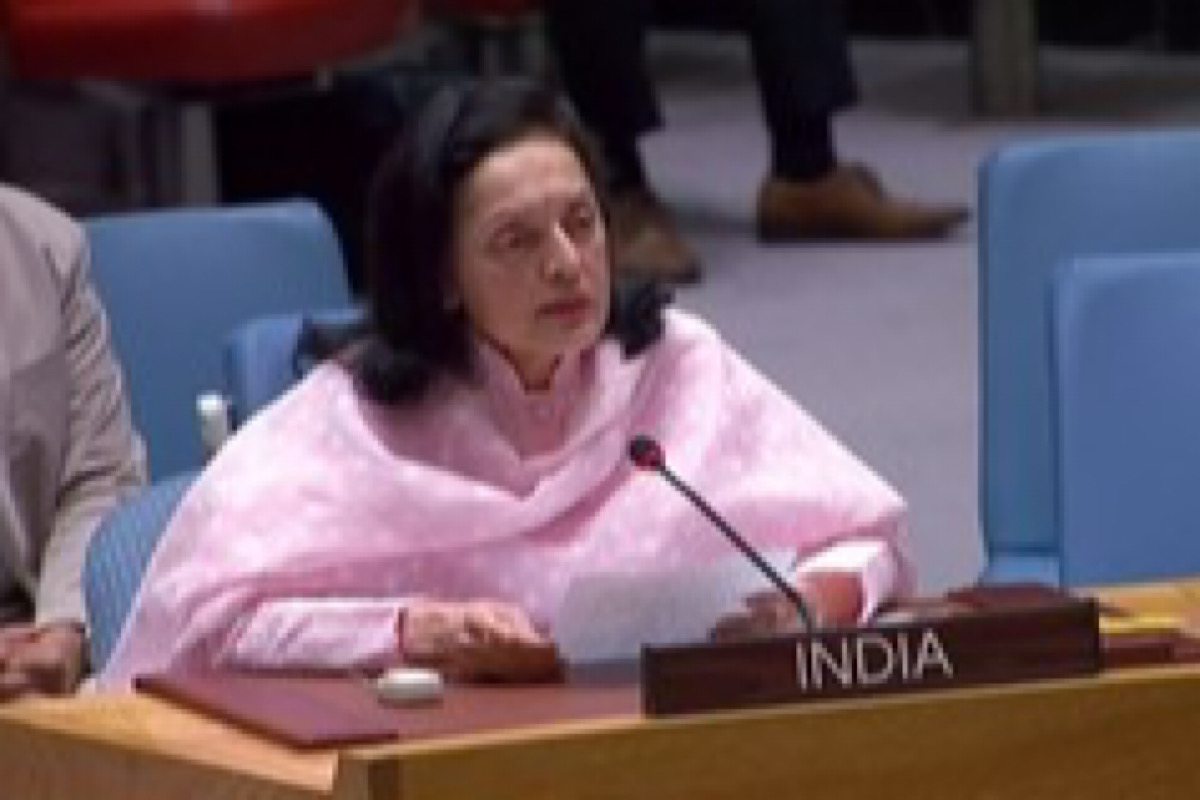To combat sexual violence in conflict situations, India has advocated a multifaceted approach which includes “gender-responsive arms control” that prevents the proliferation of weapons.
“Demilitarisation, intertwined with disarmament, calls for gender-responsive arms control” (and) “this approach recognises the role of weapon proliferation in conflict-related sexual violence”, India’s Permanent Representative Ruchira Kamboj said on Tuesday during a Security Council open debate on protecting women against sexual violence in conflict.
Advertisement
She advocated “arms control policies that address the specific vulnerabilities of women”.
Secretary-General Antonio Guterres’ Special Representative on Sexual Violence in Conflict, Pramila Patten, emphasised the need to stop the flow of weapons into the hands of perpetrators of sexual violence.
“There could be no more direct and effective way to disarm the weapon of rape, and ultimately, to prevent and eradicate these crimes” than by using sanctions against the arming of those committing the crimes, she said.
Malta’s Deputy Prime Minister Chris Fearne, who presided over the meeting, said that UN Sanctions Committees should make sexual and gender-based violence a criterion for imposing sanctions.
As “conflicts have become more fragmented, and the theatre of conflict much more complex and volatile”, Kamboj said that preventing sexual violence “requires a multifaceted approach, involving community engagement — particularly with women — in security and disarmament decisions”.
India’s “dedication to the Women, Peace, and Security agenda is demonstrated through a comprehensive approach to combating conflict-related sexual violence” that “includes international collaborations, national policy reforms, and grassroots-level initiatives”, she said.
India “has been very vocal about the need to incorporate gender perspectives into peace and security policies” and was the first country to deploy an all-women Formed Police Unit to the UN mission in Liberia in 2007, Kamboj said.
“Indian female peacekeepers have played a crucial mentoring role in preventing conflict-related sexual violence,” she said.
Patten said, “Far too many perpetrators of wartime sexual violence still walk free, while women and girls walk in fear”.
“We meet at a time when the pursuit of peace and gender equality has once again become a radical act,” she said.
Patten said that the Secretary-General’s latest annual report reflects a dramatic 50 per cent increase in the UN-verified cases of conflict-related sexual violence than the previous year.
The report recorded 3,688 cases last year with women and girls as 95 per cent of the victims and children were harmed in 32 per cent of these cases.
Fearne said that conflict-related sexual violence in Israel and Palestine must be addressed and he also condemned the Taliban’s systematic gender persecution and gender-based violence in Afghanistan.










